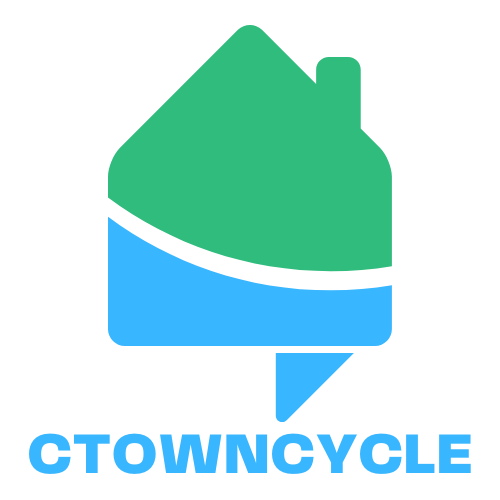Table of Contents
ToggleImagine living in your dream home while someone else pays your mortgage. Sounds like a fantasy, right? Welcome to the world of house hacking, where savvy homeowners turn their properties into income-generating machines. It’s like having your cake and eating it too—except this cake helps you build wealth!
House Hacking Definition
House hacking refers to the practice of leveraging a residential property to generate income. This strategy allows homeowners to offset their living expenses significantly. Many individuals choose to rent out a portion of their home, such as a basement apartment or a spare bedroom.
Investing in multifamily properties presents another house hacking option. Owners can live in one unit while renting out the others, maximizing rental income. For example, a homeowner with a duplex can inhabit one side and lease the other, thereby covering mortgage payments.
Utilizing platforms like Airbnb also enhances house hacking opportunities. By renting out spaces on a short-term basis, homeowners can capitalize on high demand in their locales. This approach often leads to increased monthly cash flow, helping cover housing costs.
Choosing long-term tenants typically results in steady income, while short-term rentals may yield higher returns. This flexibility allows property owners to adapt to market conditions and personal preferences.
Understanding zoning laws and rental regulations remains crucial for successful house hacking. Compliance ensures homeowners handle rentals legally and maximize their investment potential. Financial literacy also plays a role, allowing individuals to assess expenses properly and set competitive rental prices.
Overall, house hacking serves as a viable strategy for those seeking to reduce living costs while simultaneously building equity in real estate. By effectively generating income from their properties, homeowners gain the financial freedom to invest further in their futures.
Benefits of House Hacking

House hacking offers numerous advantages, particularly in achieving financial freedom and building wealth. Many homeowners take advantage of this strategy to ease their financial burdens and secure their future.
Financial Freedom
Financial freedom emerges from reduced living expenses. By renting out a portion of the home, homeowners offset mortgage payments and utility costs. They gain significant financial relief by utilizing basements, spare rooms, or investing in multifamily properties. Short-term rental platforms, like Airbnb, further enhance income opportunities. This additional income allows for savings, investment, and flexibility in budgeting. Ultimately, house hacking transforms the financial landscape for many, creating a pathway to greater economic independence.
Building Wealth
Building wealth becomes achievable through strategic house hacking. Owners increase property equity while generating rental income, thus enhancing their net worth. Real estate typically appreciates over time, so owning rental properties contributes to long-term financial growth. As rental demand persists, so does the potential for consistent income streams. Additionally, reinvesting profits into further real estate or other ventures fosters wealth accumulation. With every rental payment, they steadily build their financial foundation, paving the way for future investments and opportunities.
Types of House Hacking
House hacking can take various forms, each allowing homeowners to offset their living expenses. By exploring these methods, individuals can select the best approach for their financial situation.
Renting Out a Room
Renting out a room provides an immediate avenue for generating additional income. Homeowners can lease a spare bedroom to long-term tenants or travelers. This strategy not only helps cover mortgage payments but also fosters a sense of community. Many platforms, such as Zillow or Craigslist, simplify finding suitable renters. Setting competitive rental prices requires assessing local market rates to attract tenants. Successful room rentals can lead to substantial monthly cash flow, enhancing one’s financial stability.
Multi-Unit Properties
Investing in multi-unit properties offers a powerful way to enhance rental income. Owners can occupy one unit while leasing the others to tenants. The consistent rental income from multiple sources often fully covers mortgage costs. Real estate investors appreciate this strategy for its potential for long-term appreciation and cash flow. Locating properties in high-demand areas can yield higher occupancy rates. Unit diversity allows owners to cater to different tenant types, maximizing rental opportunities.
Risks and Considerations
House hacking presents opportunities but also entails various risks and considerations. Understanding these is crucial for prospective house hackers.
Property Management
Effective property management is essential for maximizing income from house hacking. Managing tenants requires communication skills and the ability to address maintenance issues promptly. Dealing with disruptions caused by tenants’ behaviors can add stress. Some property owners opt for professional management services, which can alleviate workload but incur additional costs. Balancing responsibilities with personal life may become challenging, especially for first-time landlords. Conducting thorough tenant screenings minimizes risks of leasing to unreliable individuals, facilitating smoother operations.
Market Trends
Market trends play a significant role in the success of house hacking strategies. Seasonal fluctuations can impact rental demand, influencing potential income. Owners must stay informed about local market conditions to set competitive rental rates. Neighborhood developments may lead to increased property values and demand for rentals, enhancing profitability. Understanding local zoning regulations can also provide insights into acceptable rental practices. Adapting to changing market dynamics may require flexibility in renovation plans and rental strategies. Exploring avenues for short-term rentals can capitalize on peak tourist seasons, further increasing income potential.
House hacking offers homeowners a unique opportunity to enhance their financial situation while enjoying their living spaces. By renting out portions of their properties or investing in multi-unit homes, they can significantly reduce living expenses and create a steady income stream.
This strategy not only builds equity over time but also fosters a sense of community among tenants. With careful planning and an understanding of local regulations, house hacking can lead to long-term financial freedom and wealth accumulation. As the real estate market evolves, homeowners who embrace this approach can adapt and thrive, making it a worthwhile consideration for anyone looking to optimize their living situation.




